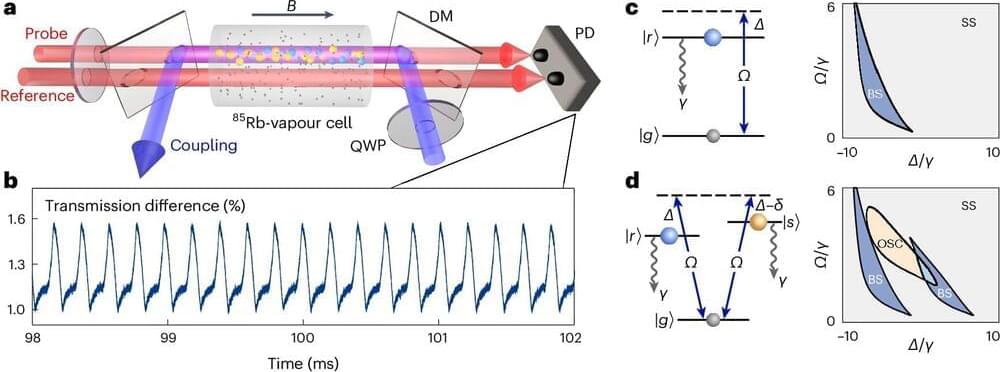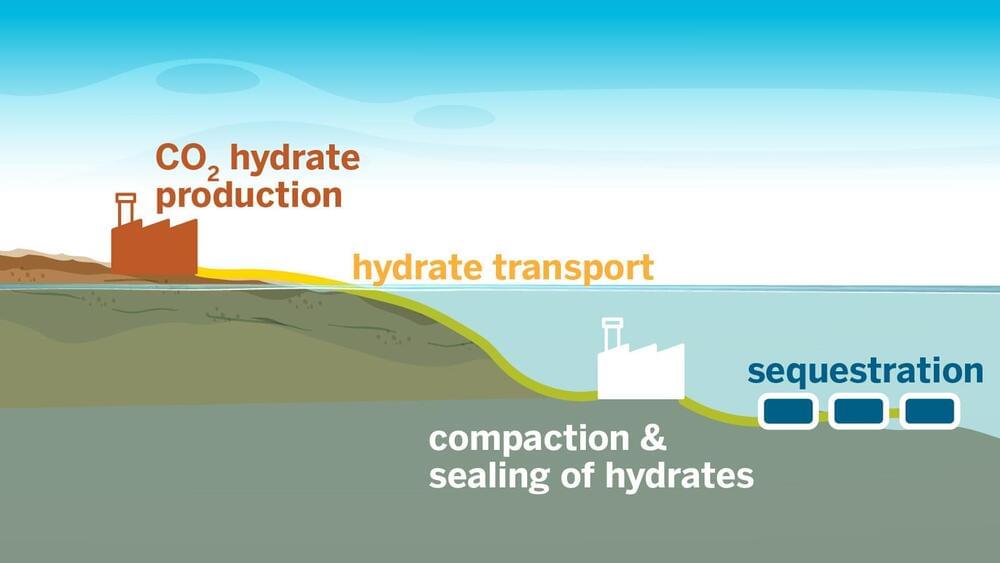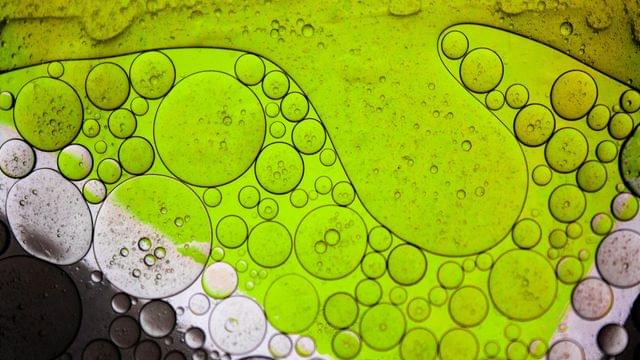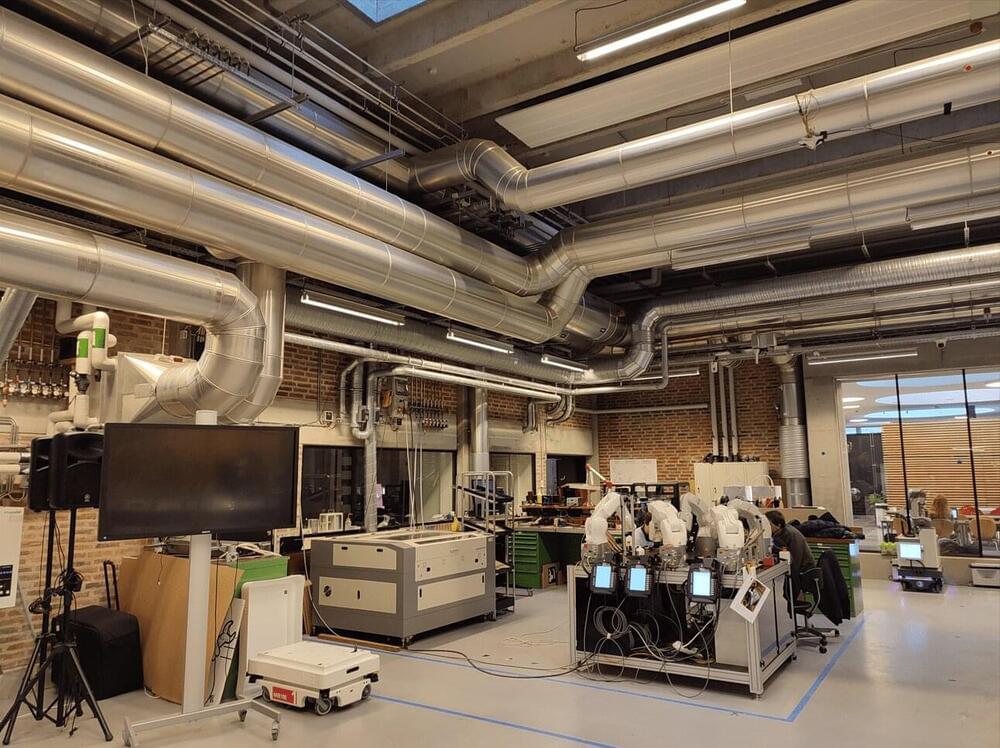Another video with some of the best arguments of the physicist Sean Carroll. Videos I used: Atheist Q & A: https://www.youtube.com/watch?v=E5pmvv_-LewMonday, J…
Get the latest international news and world events from around the world.
Sean Carroll — Physics of Consciousness
Sign up for a free Closer To Truth account to receive special members-only benefits: https://closertotruth.com/
How to explain our inner awareness that is at once most common and most mysterious? Traditional explanations focus at the level of neuron and neuronal circuits in the brain. But little real progress has motivated some to look much deeper, into the laws of physics — information theory, quantum mechanics, even postulating new laws of physics.
Watch more videos on consciousness as all physical: https://shorturl.at/PKpOk.
Sean Carroll is Homewood Professor of Natural Philosophy at Johns Hopkins University and fractal faculty at the Santa Fe Institute. His research focuses on fundamental physics and cosmology.
Closer To Truth, hosted by Robert Lawrence Kuhn and directed by Peter Getzels, presents the world’s greatest thinkers exploring humanity’s deepest questions. Discover fundamental issues of existence. Engage new and diverse ways of thinking. Appreciate intense debates. Share your own opinions. Seek your own answers.
Physicist argues about consciousness | Sean Carroll and Lex Fridman
Lex Fridman Podcast full episode: https://www.youtube.com/watch?v=tdv7r2JSokIPlease support this podcast by checking out our sponsors:- HiddenLayer: https://…
Steven Weinberg — Why a Fine-Tuned Universe?
How can so many numbers of nature—the constants and relationships of physics—be so spot-on perfect for humans to exist? Coincidence and luck seem wildly unlikely. This question causes controversy, among scientists and among philosophers. Beware: there is more than one answer lurking here.
Free access to Closer to Truth’s library of 5,000 videos: http://bit.ly/376lkKN
Watch more interviews on fine tuning: https://bit.ly/3EyyJQh.
Steven Weinberg is an American theoretical physicist and Nobel laureate in Physics for his contributions to the unification of the weak force and electromagnetic interaction between elementary particles.
Register for free at CTT.com for subscriber-only exclusives: http://bit.ly/2GXmFsP
Closer to Truth, hosted by Robert Lawrence Kuhn and directed by Peter Getzels, presents the world’s greatest thinkers exploring humanity’s deepest questions. Discover fundamental issues of existence. Engage new and diverse ways of thinking. Appreciate intense debates. Share your own opinions. Seek your own answers.
Steven Weinberg — Where Do the Laws of Nature Come From?
Free access to Closer to Truth’s library of 5,000 videos: http://bit.ly/376lkKN What’s real? What’s fundamental? There are regularities in nature, things tha…

Scientists successfully create a time crystal made of giant atoms
A crystal is an arrangement of atoms that repeats itself in space, in regular intervals: At every point, the crystal looks exactly the same. In 2012, Nobel Prize winner Frank Wilczek raised the question: Could there also be a time crystal—an object that repeats itself not in space but in time? And could it be possible that a periodic rhythm emerges, even though no specific rhythm is imposed on the system and the interaction between the particles is completely independent of time?
For years, Frank Wilczek’s idea has caused much controversy. Some considered time crystals to be impossible in principle, while others tried to find loopholes and realize time crystals under certain special conditions.
Now, a particularly spectacular kind of time crystal has successfully been created at Tsinghua University in China, with the support from TU Wien in Austria.

New carbon storage technology is fastest of its kind
A new way to store carbon captured from the atmosphere, developed by researchers at The University of Texas at Austin, works much faster than current methods without the harmful chemical accelerants they require.
In new research published in ACS Sustainable Chemistry & Engineering, the team developed a technique for ultrafast formation of carbon dioxide hydrates. These unique ice-like materials can bury carbon dioxide in the ocean, preventing it from being released into the atmosphere.
“We’re staring at a huge challenge—finding a way to safely remove gigatons of carbon from our atmosphere—and hydrates offer a universal solution for carbon storage. For them to be a major piece of the carbon storage pie, we need the technology to grow them rapidly and at scale,” said Vaibhav Bahadur, a professor in the Walker Department of Mechanical Engineering who led the research. “We’ve shown that we can quickly grow hydrates without using any chemicals that offset the environmental benefits of carbon capture.”

Mini “Chariots” Steered by Algae Could Assist Environmental Research
Researchers have created tiny, vehiclelike structures which can be maneuvered by microscopic algae. The algae are caught in baskets attached to the micromachines, which have been carefully designed to allow them enough room to continue swimming. Two types of vehicles were created: the “rotator,” which spins like a wheel, and the “scooter,” which was intended to move in a forward direction but in tests moved more surprisingly. The team is planning to try different and more complex designs for their next vehicles. In the future, these mini algae teams could be applied to assist with micro-level environmental engineering and research.
You’ve likely heard of horsepower, but how about algae power? Like a sled drawn by a team of dogs or a plough pulled by oxen, researchers have created microscopic machines which can be moved by lively, tiny, single-celled green algae.
“We were inspired to try and harness Chlamydomonas reinhardtii, a very common algae found all over the world, after being impressed by its swift and unrestricted swimming capabilities,” said Naoto Shimizu, a student from the Graduate School of Information Science and Technology at the University of Tokyo (at the time of the study), who initiated the project. “We’ve now shown that these algae can be trapped without impairing their mobility, offering a new option for propelling micromachines which could be used for engineering or research purposes.”

Better understanding of wave propagation processes could boost 5G and 6G networks
Researchers from the Smart and Wireless Applications and Technologies Group (SWAT-UGR) have conducted two scientific studies aimed at answering a common question: understanding how electromagnetic waves propagate in the medium.
The increase in network speed opens the door to new possibilities, such as robotic surgery or virtual reality services.
A team of UGR researchers has examined the propagation of electromagnetic waves with the goal of enhancing the deployment of 5G and 6G networks. Additionally, the study results contribute to the development of Industry 4.0, which seeks to automate processes in factories using wireless technologies.
